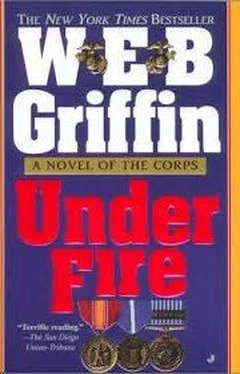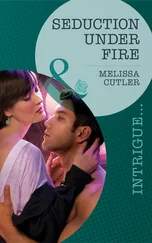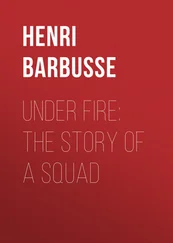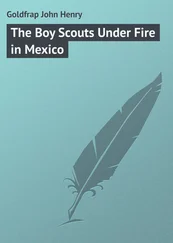Griffin W.E.B. - The Corps 09 - Under Fire
Здесь есть возможность читать онлайн «Griffin W.E.B. - The Corps 09 - Under Fire» весь текст электронной книги совершенно бесплатно (целиком полную версию без сокращений). В некоторых случаях можно слушать аудио, скачать через торрент в формате fb2 и присутствует краткое содержание. Год выпуска: 0101, Жанр: Старинная литература, на английском языке. Описание произведения, (предисловие) а так же отзывы посетителей доступны на портале библиотеки ЛибКат.
- Название:The Corps 09 - Under Fire
- Автор:
- Жанр:
- Год:0101
- ISBN:нет данных
- Рейтинг книги:5 / 5. Голосов: 1
-
Избранное:Добавить в избранное
- Отзывы:
-
Ваша оценка:
- 100
- 1
- 2
- 3
- 4
- 5
The Corps 09 - Under Fire: краткое содержание, описание и аннотация
Предлагаем к чтению аннотацию, описание, краткое содержание или предисловие (зависит от того, что написал сам автор книги «The Corps 09 - Under Fire»). Если вы не нашли необходимую информацию о книге — напишите в комментариях, мы постараемся отыскать её.
The Corps 09 - Under Fire — читать онлайн бесплатно полную книгу (весь текст) целиком
Ниже представлен текст книги, разбитый по страницам. Система сохранения места последней прочитанной страницы, позволяет с удобством читать онлайн бесплатно книгу «The Corps 09 - Under Fire», без необходимости каждый раз заново искать на чём Вы остановились. Поставьте закладку, и сможете в любой момент перейти на страницу, на которой закончили чтение.
Интервал:
Закладка:
"By when do you think you'll be able to have the tides figured out?"
"Never," Taylor had said seriously. "But today, with the relatively shallow draft of this vessel, I think I can try to get into port about eleven."
"If we can see the lighthouse, they can see us," McCoy said.
"Another astute observation," Taylor said, still playing Charles Laughton. "I am amazed at your perspicacity, Mr. McCoy."
McCoy was forced to smile.
"You don't think the lighthouse keeper might report that a strange junk loaded with more people than usual, some of whom don't look very Oriental, just sailed past?"
"That would be a real possibility if (a) there was a light-house keeper at the lighthouse, and (b) he had a generator to power a radio to communicate with somebody," Taylor said. "But you may relax, Mr. McCoy. I have it from a reli-able source that there is neither."
"What reliable source?"
"Our own esteemed Major Kim," Taylor said, pointing to Kim, who was leaning against the stern railing.
Kim was wearing a baggy black cotton shirt and trousers. The last time McCoy had seen him, he had been in neatly pressed American khakis.
"When I was last on Tokchok-kundo," Major Kim said, "the lighthouse keeper was hiding out there," Major Kim said. "He told me that he had removed the important parts of the generator and the radio and took off when he saw the North Koreans were in Inchon."
"You don't think the North Koreans would try to get it up and running? What are they doing without a lighthouse? Taking their chances?"
"The enemy isn't running any deep-draft vessels into In-chon, Captain McCoy," Kim said. "They are using their own ports, which are protected by antiaircraft weapons. They'll wait until they have taken the Pusan perimeter to clean up this area.- They have more important things to do than fix a lighthouse that right now would do nothing more than help guide South Korean fishermen home."
"But won't our invasion fleet need it?" McCoy asked.
"If they start down the Flying Fish at night, they will," Taylor said. "And they're going to have to do just that."
"So we have to think about getting it up and running ourselves?"
"In the Dai-chi Building, the brass's idea was, when they sent you Marines to take Taemuui-do and Yonghung-do on D Minus One, the landing boats would drop half a dozen men off at the lighthouse with either a generator or enough gas and oil to make a fire."
"So that's why you didn't say anything?"
"I figured I'd wait to see if we got away with taking Taemuui-do and Yonghung-do," Taylor said. "If we do get away with that, and if they don't send people to take them back, there'll be plenty of time to think about what we want to do with the lighthouse."
" `If'?" Jeanette quoted. " `If? What do they call that, `confidence'?"
"Facing facts," Taylor said. Then he pointed. "There it is. To port?"
McCoy saw a rocky island, with what looked like thatch-roofed stone houses at the water's edge.
"Where's Taemuui-do and Yonghung-do?" McCoy asked.
"You can't see them from here; you can, just barely, from the other side of Tokchok-kundo. But from here in, I think we'd better get everybody below. That includes you, Jeanette. If you're going to stay up here, McCoy, put on a Korean shirt."
He pointed to Major Kim's floppy black cotton clothing.
"My Korean stuff is below. I'll go get it," McCoy said.
Major Kim touched his arm, and when McCoy turned to look at him, handed him a black cotton shirt and trousers.
"Thank you," McCoy said.
"With your permission, Captain," Kim said, addressing Taylor, "I will have my men prepared to deal with what-ever we find when we tie up."
"Like what, for example?" Jeanette asked.
"We have had no communication with Tokchok-kundo Island, Miss Priestly," Kim said. "The North Koreans may have decided to occupy it."
"Have at it, Major," Taylor ordered.
"And if they have, then what?" Jeanette pursued.
"Then we hope we have more men than they do," Taylor said. "Please get below, Miss Priestly."
[TWO]
The landing plan was simple. Taylor would sail the Wind of Good Fortune into Tokchok-kundo's harbor-actually nothing much more than an indentation in the shoreline with a crude stone wharf jutting out into it-and "see what happens."
In case "what happened" was a detachment of North Korean soldiers, he would have the diesel engine running, so if McCoy decided retreat was the smart thing to do, they could move quickly.
There was a strong possibility, however-depending on McCoy's assessment of the strength of the enemy force, if there was one-that the smart thing to do would be to take the detachment out before retreating.
If there was a North Korean detachment on the island, they would probably have a radio, with which they could call the mainland and report that an attempt by white men (read: Americans) was trying to take the island. That might send North Korean patrol vessels after them, and it would certainly tip the North Koreans that the Americans were showing an unusual interest in Tokchok-kundo.
Taking the detachment out would prevent that. If there were prisoners, they could be taken to Pusan. Any bodies could be buried at sea. By the time someone investigated why Tokchok-kundo hadn't been heard from lately, the Wind of Good Fortune would be far at sea.
And the plan for taking out the North Korean detach-ment-if there was one-was also simple. Major Kim, hoping to look like a sailor, was to stand on the deck to starboard just aft of the forecastle. His national policemen would be in the forecastle itself, ready to move onto the deck on his signal.
Captain McCoy would be aft on the deck to starboard, sitting on the deck, where he hoped the solid railing would keep him from being seen by anyone on the shore. He didn't look much like a Korean sailor.
Neither did Lieutenant Taylor, even though he was now also wearing a black cotton shirt and trousers, and had his hair and forehead wrapped in black cotton. He was in the best position to see what was on the wharf and shore, and was also in the worst position to try to pass himself off as a Korean sailor.
The Marines were to be in the passage below the bridge on the stern, ready to move at McCoy's order.
That order would come when either Major Kim or Lieu-tenant Taylor decided that it no longer mattered if someone on shore could see that McCoy was not a Korean seaman and would call his name.
McCoy would then stand up, have a look himself, and decide what was the smart thing to do.
A flash of reflected light struck the solid railing behind which McCoy was concealing himself. He looked and saw Jeanette Priestly, on her hands and knees, crawling toward him from the door to the passageway under the stern. Her Leica, its case open, hung from her neck and dragged along the deck.
"Okay?" she asked when she reached him, and was sit-ting on the deck, her back against the stern bulkhead.
"Fine. With a little luck, when the shooting starts, you'll catch a bullet."
"You don't mean that," she said.
"Don't I?"
"No," she said, and put the Leica up and took his picture.
"I told you the next time you took my picture without asking, I'd throw your camera over the side."
"You didn't mean that either," she said. "And anyway, you can't do that now. Anyone on shore would see it."
He shook his head.
"You looked very thoughtful, just now, before you saw me," Jeanette said. "Penny for your thoughts, Captain Mc-Coy."
"Jesus Christ!" he said, but he realized he was smiling.
"Well?"
"When I was a kid," he said, "my grandmother had a big plate-from China, I guess-in her dining room. It was painted with pictures of pagodas, and there was a junk, and trees-"
"Willows," she interrupted. "They were willow trees. They call those dishes `Blue Willow,' I think."
Читать дальшеИнтервал:
Закладка:
Похожие книги на «The Corps 09 - Under Fire»
Представляем Вашему вниманию похожие книги на «The Corps 09 - Under Fire» списком для выбора. Мы отобрали схожую по названию и смыслу литературу в надежде предоставить читателям больше вариантов отыскать новые, интересные, ещё непрочитанные произведения.
Обсуждение, отзывы о книге «The Corps 09 - Under Fire» и просто собственные мнения читателей. Оставьте ваши комментарии, напишите, что Вы думаете о произведении, его смысле или главных героях. Укажите что конкретно понравилось, а что нет, и почему Вы так считаете.










